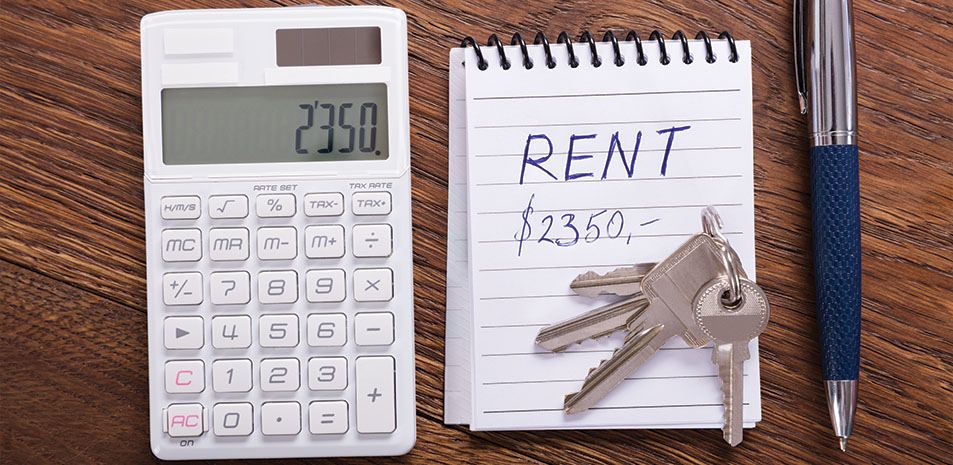A Comprehensive Guide to Renting Out Your Apartment: Rules and Procedures Explained
Renting out your apartment can be a lucrative investment strategy, providing you with an additional source of income and helping offset the costs of homeownership. However, before becoming a landlord, it’s essential to understand the rules and procedures involved in renting out your property. In this blog post, we’ll provide a comprehensive guide to help you navigate the process with confidence and ensure a smooth and successful rental experience.
Understand Landlord-Tenant Laws
Before renting out your apartment, familiarize yourself with the landlord-tenant laws applicable in your jurisdiction. These laws govern the rights and responsibilities of both landlords and tenants and outline the legal requirements for rental agreements, security deposits, eviction procedures, and more. Consult with a real estate attorney or property management professional to ensure you comply with all relevant regulations.
Prepare Your Apartment for Rent
Before listing your apartment for rent, take the time to prepare it for occupancy. Ensure the property is clean, well-maintained, and in good repair. Address any necessary repairs or maintenance tasks, such as fixing leaky faucets, repainting walls, and replacing worn-out fixtures. Consider investing in upgrades or improvements that can enhance the rental value of the property, such as installing modern appliances or updating the kitchen and bathroom.
Set an Appropriate Rent Price
Determine an appropriate rent price for your apartment based on factors such as its location, size, condition, and amenities. Research comparable rental properties in the area to gauge market rates and ensure your asking price is competitive. Consider factors such as demand, vacancy rates, and seasonal fluctuations when setting the rent price. Be prepared to adjust the rent price as needed to attract tenants and maximize rental income.

Screen Potential Tenants
Screen potential tenants carefully to ensure they are reliable, responsible, and capable of paying rent on time. Conduct background checks, credit checks, and rental history verification to assess their suitability as tenants. Verify employment and income to ensure tenants can afford the rent and meet their financial obligations. Establish clear criteria for tenant selection and apply them consistently to avoid discrimination claims.
Create a Comprehensive Lease Agreement
Draft a comprehensive lease agreement that outlines the terms and conditions of the tenancy. Include essential details such as the duration of the lease, rent amount and due date, security deposit amount, pet policy, maintenance responsibilities, and rules for occupancy. Clearly define the rights and responsibilities of both parties to prevent misunderstandings and disputes later on. Consider consulting with a legal professional to ensure your lease agreement complies with applicable laws and protects your interests as a landlord.
Collect Security Deposits and Rent Payments
Collect a security deposit from the tenant before they move in to protect against damages or unpaid rent. Determine the amount of the security deposit based on state laws and industry standards, typically equivalent to one or two months’ rent. Establish procedures for collecting rent payments, such as setting up automatic payments, accepting online payments, or providing tenants with payment options. Clearly communicate rent payment due dates and late fees to encourage timely payment.
Handle Maintenance and Repairs Promptly
As a landlord, you are responsible for maintaining the habitability of the rental property and addressing any necessary repairs promptly. Respond to maintenance requests from tenants in a timely manner and ensure all repairs are completed to a satisfactory standard. Establish clear procedures for reporting maintenance issues and emergency contact information for tenants to reach you outside of regular business hours.

Understand Eviction Procedures
While eviction is a last resort, it’s essential to understand the legal procedures and requirements for evicting a tenant if necessary. Familiarize yourself with the grounds for eviction, such as non-payment of rent, lease violations, or illegal activities, and follow the proper legal process outlined in landlord-tenant laws. Consult with a legal professional if you need assistance navigating the eviction process to ensure you comply with all legal requirements and protect your rights as a landlord.
Comply with Fair Housing Laws
Ensure compliance with fair housing laws and regulations to prevent discrimination against tenants based on protected characteristics such as race, color, religion, national origin, sex, familial status, or disability. Advertise rental properties in a non-discriminatory manner and treat all applicants and tenants fairly and equally. Avoid making discriminatory statements or engaging in practices that could be perceived as discriminatory.
Consider Hiring Professional Property Management
If you’re unable or unwilling to manage the rental property yourself, consider hiring a professional property management company to handle day-to-day operations on your behalf. Property managers can assist with tasks such as tenant screening, rent collection, maintenance and repairs, lease enforcement, and eviction proceedings, freeing you from the burdens of landlord responsibilities while ensuring your property is well-managed and maintained.
In conclusion, renting out your apartment can be a rewarding and profitable venture, but it requires careful planning, attention to detail, and adherence to legal requirements. By understanding the rules and procedures involved in renting out your property, you can minimize risks, protect your investment, and create a positive and mutually beneficial rental experience for both you and your tenants.










